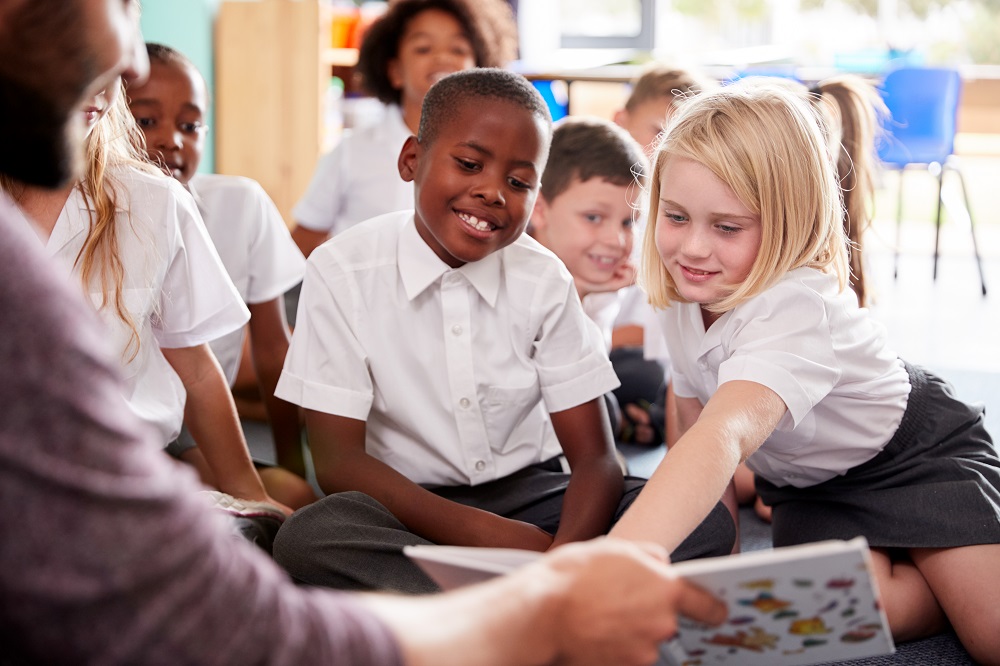Children’s Commissioner calls for a stronger response to racism in schools

Children and young people continue to experience racism and racist incidents in secondary school across Wales, and few have confidence in how this is dealt with, according to a new report.
The report, titled ’Take it Seriously: Children’s experiences of racism within secondary schools’ calls for a stronger school response to racism and racist incidents, more training and support for schools, and national data on racist incidents.
Rocío Cifuentes, The Children’s Commissioner for Wales, and her team listened to 170 children as part of the research, as well as school leaders, teachers, and staff working across the public and third sectors.
Normalisation
As part of the Commissioner’s research, children across Wales spoke about the normalisation of racist language and the ‘everyday’ nature of racist experiences. Many felt that these incidents were not taken seriously or properly addressed.
Experiences of racism in the report include a young Muslim girls who wears a headscarf receiving comments such as ‘you’re hiding a bomb in your scarf’, pupils being called ‘terrorists’, use of the N-word being ‘normalised’ in a school and one girl being called ‘a monkey’ and ‘a cotton-picker’.
One child had been told by another that they didn’t want to sit next to them because of their skin colour.
Young people felt that very little is done when racist incidents are reported, according to the Children’s Commissioner. She said that young people want teachers to take racism more seriously, and to see those who have engaged in racist behaviour receiving appropriate sanctions.
One young person quoted in the report said ‘no one really reports as nothing gets done’, while another said their school is stricter about school uniform than racism. Young people who took part in the research called for clearer reporting systems, more support for those experiencing racism, and better communication from schools on how reported incidents were being dealt with.
One teacher told the Commissioner’s team that they had never had specific training on racism, despite teaching for 27 years. Similarly, other school leaders and teachers said they had received very few or no training opportunities. Teachers and school leaders had mixed views on the extent that existing Welsh Government guidance helps them to deal with racism effectively, with some calling for clearer, more practical materials.
Some teachers taking part in the research worried about ‘saying the wrong thing’ and being ‘uncomfortable about the topic’. One school leader said teachers can be uncomfortable talking about race, which can result in ‘smoothing over’ incidents. They said that this causes harm by normalising experiences of racism and creating barriers in reporting.
Recommendations
The GCSE text Of Mice and Men, which contains the N-word, was also discussed by some school leaders. Some said they had stopped using the text after discussing its impact with young people.
Commenting on her findings, Rocio Cifuentes MBE said: “The voices collected in this report have given us some stark insight into the ways and extent to which children and young people are experiencing racism and racist incidents within secondary schools in Wales, and how these experiences are almost a normal part of life for them.
She added: ”We have also heard why learners may not report racist incidents, including the normalisation of racism, fear of the process being emotionally draining and burdensome, and not expecting much to happen anyway. This means that overall, the cost-benefit analysis means that it is usually not seen as worth reporting racist incidents. This suggests that those incidents which do get reported are really just the visible tip of a very large iceberg.”
Discussing the lack of support felt by teachers, she said: ”On the whole, teachers reported feeling under-equipped and unconfident to respond to racism. They would really like more practical and clearer guidance, as well as ongoing support on how they should respond to this evolving issue.”
She further added: ”From children and young people, we heard strong calls overall for schools to take racism more seriously, for there to be more training for teachers to understand racism and diversity, and for schools to do more to educate all children and young people about racism to stop it happening in the first place.”
The report makes 22 recommendations, including a need from the Welsh Government to clarify how racist incidents should be recorded and responded to, a review of text lists for the school syllabus, mandatory anti-racist training for all education leaders, and clearer school policies on responding to racist incidents with regular, timely and sensitive feedback mechanisms.
Support our Nation today
For the price of a cup of coffee a month you can help us create an independent, not-for-profit, national news service for the people of Wales, by the people of Wales.





